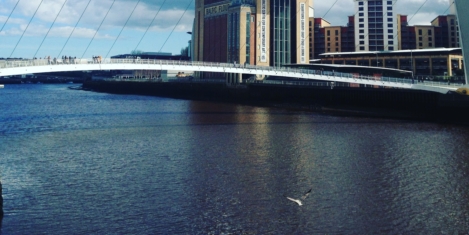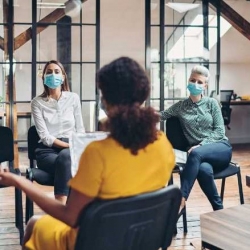May 4, 2021
New guidance to increase natural settings into urban spaces
 The UK Green Building Council (UKGBC) has published its ‘Principles for delivering urban Nature-based Solutions’ (NBS), to help developers and owners increase the incorporation of NBS within the construction and operation of built assets. The report claims that the development and function of the built environment has significant impacts upon both climate and biodiversity, locally and globally, and the pressure for our industry to be part of the solution is accelerating. The recommendations of the Taskforce for Climate-related Financial Disclosure (TCFD) have led to a growing requirement to measure and mitigate the physical risks to built assets from climate change, such as flooding and overheating. (more…)
The UK Green Building Council (UKGBC) has published its ‘Principles for delivering urban Nature-based Solutions’ (NBS), to help developers and owners increase the incorporation of NBS within the construction and operation of built assets. The report claims that the development and function of the built environment has significant impacts upon both climate and biodiversity, locally and globally, and the pressure for our industry to be part of the solution is accelerating. The recommendations of the Taskforce for Climate-related Financial Disclosure (TCFD) have led to a growing requirement to measure and mitigate the physical risks to built assets from climate change, such as flooding and overheating. (more…)











 Apple has announced an acceleration of its US investments, with plans to make new contributions of more than $430 billion and add 20,000 new jobs across the country over the next five years. The plans include the creation of a new
Apple has announced an acceleration of its US investments, with plans to make new contributions of more than $430 billion and add 20,000 new jobs across the country over the next five years. The plans include the creation of a new 
 Half of Britain’s workers expect their bosses to demand a vaccine passport before they can return to their
Half of Britain’s workers expect their bosses to demand a vaccine passport before they can return to their 


 A recent survey by
A recent survey by 
 More than a third (35 percent) of UK IT decision makers admitted that their remote workers have already knowingly put corporate data at risk of a breach in the last year according to an annual survey – conducted by
More than a third (35 percent) of UK IT decision makers admitted that their remote workers have already knowingly put corporate data at risk of a breach in the last year according to an annual survey – conducted by 
 A survey released by
A survey released by 
 The real estate industry needs to transform to serve the needs of people and cities in the next decade, according to a new report released by the
The real estate industry needs to transform to serve the needs of people and cities in the next decade, according to a new report released by the 
 Companies that have a high-level of mutual trust between their management and employees are much more likely to have a greater economic and financial performance, according to new research from
Companies that have a high-level of mutual trust between their management and employees are much more likely to have a greater economic and financial performance, according to new research from 
 As pubs, shops and other workplaces re-open this week, the success of the vaccine rollout has helped employees feel much more optimistic about their return to work than they were following November’s lockdown, according to
As pubs, shops and other workplaces re-open this week, the success of the vaccine rollout has helped employees feel much more optimistic about their return to work than they were following November’s lockdown, according to 
 UK business leaders are increasingly turning their backs on suppliers who fail to align with their social values, according to new research by
UK business leaders are increasingly turning their backs on suppliers who fail to align with their social values, according to new research by 







